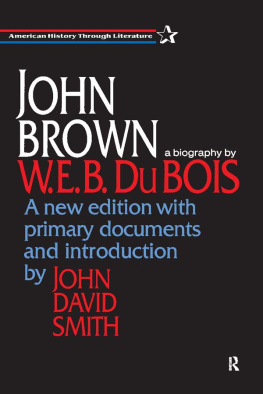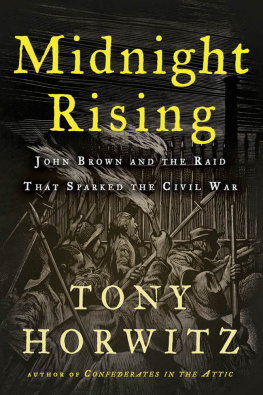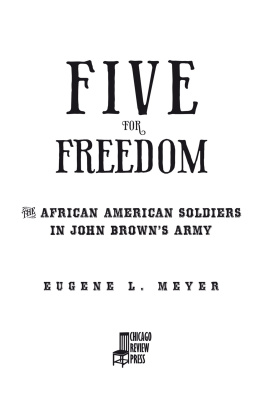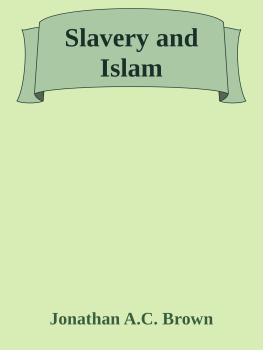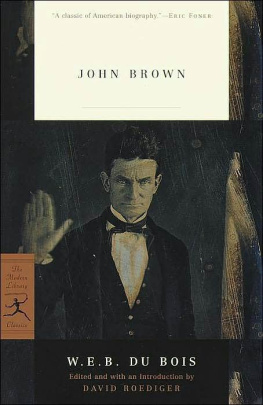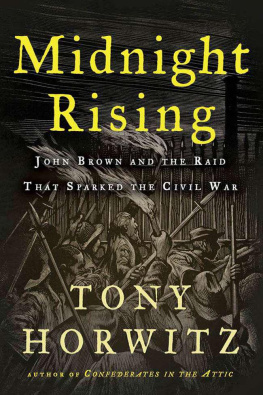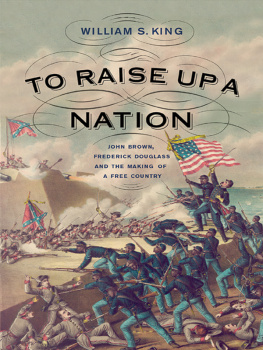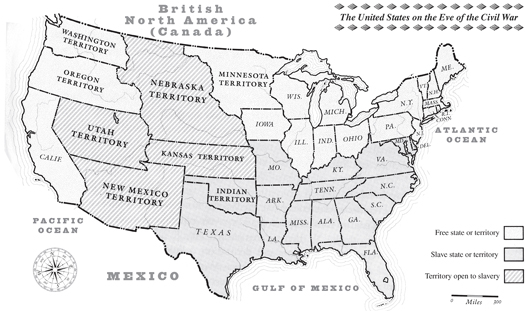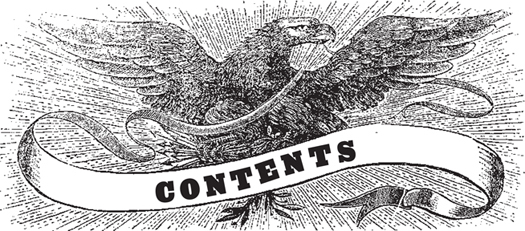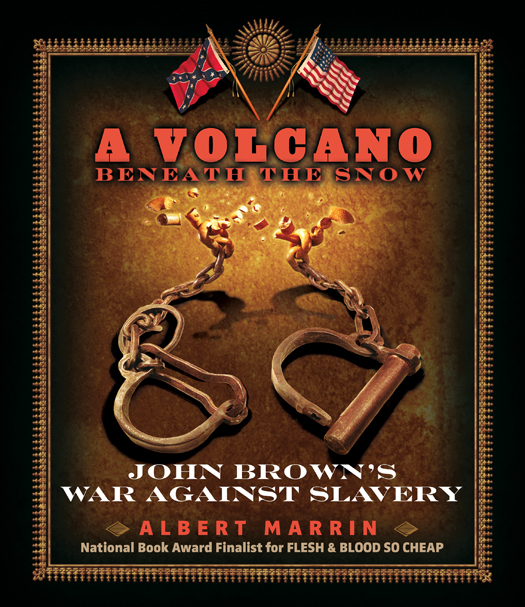
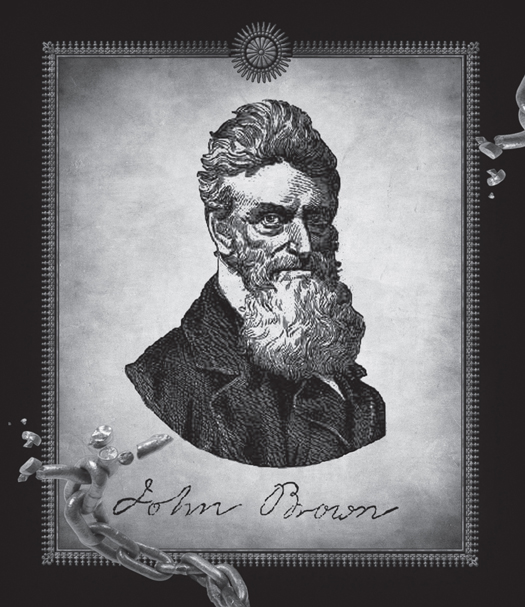
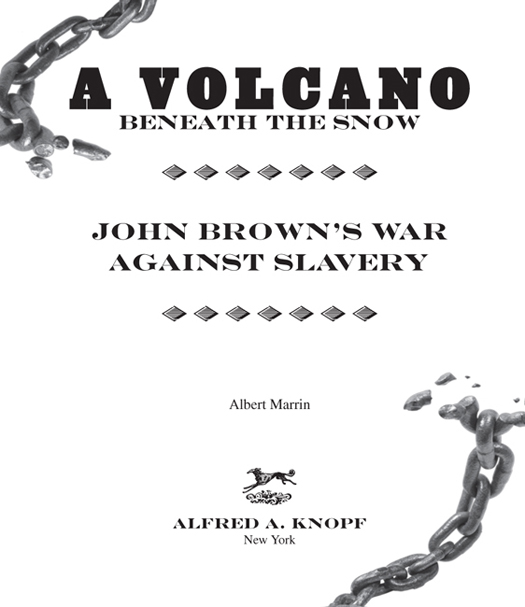
THIS IS A BORZOI BOOK PUBLISHED BY ALFRED A. KNOPF
Text copyright 2014 by Albert Marrin
Jacket photographs: shackles 2014 by the National Civil War Museum, Harrisburg, Pennsylvania; flags and border 2014 by Shutterstock.com All rights reserved. Published in the United States by Alfred A. Knopf, an imprint of Random House Childrens Books, a division of Random House LLC, a Penguin Random House Company, New York.
Knopf, Borzoi Books, and the colophon are registered trademarks of Random House LLC.
Visit us on the Web! randomhouse.com/teens
Educators and librarians, for a variety of teaching tools, visit us at RHTeachersLibrarians.com
Library of Congress Cataloging-in-Publication Data
Marrin, Albert.
A volcano beneath the snow : John Browns war against slavery / Albert Marrin. 1st ed.
p. cm.
Includes bibliographical references and index.
ISBN 978-0-307-98152-3 (trade) ISBN 978-0-307-98153-0 (lib. bdg.) ISBN 978-0-385-75340-1 (ebook)
1. Brown, John, 18001859Juvenile literature. 2. AbolitionistsUnited StatesBiographyJuvenile literature. I. Title.
E451.M352 2014
973.7116092dc23
[B]
2012043231
Random House Childrens Books supports the First Amendment and celebrates the right to read.
v3.1

To the memory of Frederick Douglass, American hero


God give us angry men in every age,
Men with indignant souls at sight of wrong,
Men whose whole being glows with righteous rage,
Men who are strong for those who need the strong.
Charles M. Sheldon, Gods Angry Man, 1910

Prologue
A House Dividing
On June 16, 1858, a man, by profession a lawyer, stood before a political meeting in Springfield, Illinois. Nobody could call him handsome; indeed, he admitted with a smile, he was downright ugly. Thin as a twig, with big ears, coarse facial features, and sunken cheeks, he was unusually tall. Standing six feet four inches in his socks, he reminded folks of a skeleton, with skin covering the bones and clothes covering the skin.
What captured the audiences attention, however, was not Abraham Lincolns appearance, but his words. A house divided against itself cannot stand, he said in a high-pitched voice. I believe this government cannot endure, permanently half slave and half free. I do not expect the Union to be dissolvedI do not expect the house to fallbut I do expect it will cease to be divided. It will become all one thing, or all the other. Either the opponents of slavery will arrest the further spread of it or its advocates will push it forward, till it shall become alike lawful in all the States, old as well as newNorth as well as South.
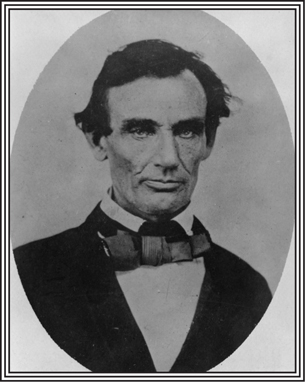
Abraham Lincoln on October 1, 1858, less than four months after his famous House Divided speech.
The house Lincoln meant was the Unionthat is, the union of states, or the United States of America, created by the U.S. Constitution. The future sixteenth president said this during a crisis unlike any since July 4, 1776, when representatives of Britains rebellious colonies issued the Declaration of Independence.
While Americans had finally overthrown British rule, they now faced a greater challenge. By 1858, no foreign power could conquer their country. The threat lay within, from a bitter quarrel over slavery between Northern and Southern states. The issue was as clear as black ink splashed on freshly fallen snow. Americans could no longer dodge the moral challenge of the age. They must take a stand on slavery, though whatever stand one person took was bound to infuriate others. That fury, in turn, threatened disunion, a breakup of the country that would lead to civil war.
Yet
Sixty years later, as Abraham Lincoln spoke in Illinois, Americans worried about what Senator William Henry Seward called the irrepressible conflict. A nationwide explosion, they felt, was inevitable, though nobody could tell exactly when or how it would come about, or who might ignite it. Slavery seemed to have the power to drive otherwise sensible people out of their minds. Politics had turned poisonous over it. With few exceptions (Lincoln was one), politicians hurled angry charges, vile insults, and threats of violence at each other. Members of Congress kept loaded pistols in their desks. Respectable folkscommunity leaders, including clergymenargued that only they had reason, justice, decency, truth, and God on their side.
Expand slavery, let it spread throughout the Union! No, God forbidabolish it everywhere, instantly! In the eyes of their opponents, those who disagreed were not merely wrong, but liars, sinners, cursed little toes of Satan. Growing numbers of Americans said they preferred bullets to ballots to uphold slavery or abolish it. Some stood ready to commit treason for their noble cause, and proudly said so. Others, equally sincere, would gladly have used terror against opponents, paralyzing their will to resist. There were also outbursts of real violence, as in Boston, where angry mobs threatened those who would return runaways to bondage in the South.
Into the center of this turmoil charged John Brown. He was not a person you could ignore. It was all or nothing with him; you either loved him or hated him. Deeply religious, he believed God had chosen him to right the wrong of slavery. Slavery was the crowning evil, the sin of sins; that was all Brown knew, or cared to know. It followed, for him, that those who held fellow humans in bondage deserved death and damnation.
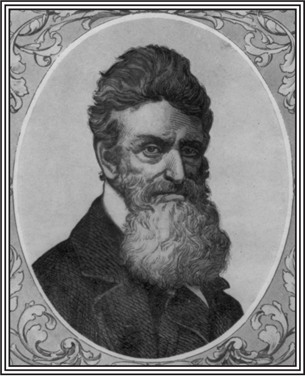
John Brown. (photograph c. 1857, memorial frame c. 1897)
Though John Brown never held high office or wrote famous books, he is a key figure in American history. During his lifetime, his words and deeds shaped how Americans thought about him. They still do. To many, he was (and is) a good man, a hero, a freedom fighter, a saint. More, he was a martyr who willingly gave his life, and the lives of three of his sons, to free those in bondage. Yet to many others,


